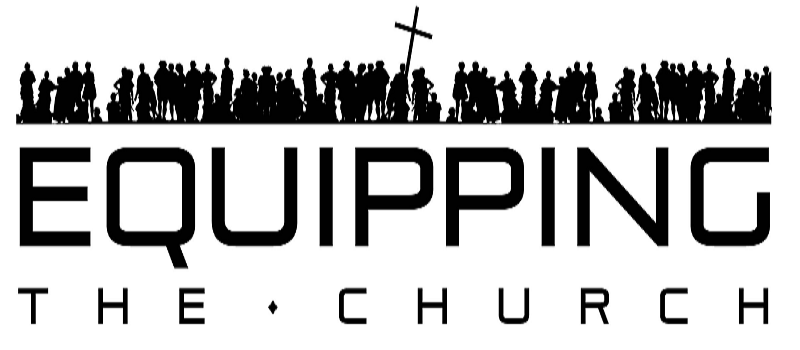![]()

ARTICLES IN THIS SERIES
1) The early church worked out their leadership based on the mission and method of Jesus.
2) The elders were the pastors in the early church.
3) The elders managed the tasks they were responsible for through delegation.
4) The elders delegated ministry to all disciples, also known as servants (diakonos, deacons).
5) The elders both provided and delegated the task of pastoral care.
6) All of the elders (leaders) and deacons (workers) were ordained (commissioned) with prayer and the laying on of hands.
3) The elders managed the tasks they were responsible for through delegation.
So far we have seen that Jesus trained His disciples to lead the mission of His church. He sent them (apostolos) to multiply disciples, who in turn would raise up other disciples (2 Timothy 2:2). In each church more mature disciples (the elders, presbyteros) were appointed to oversee (episkopos, watch over) the people of God as pastors (poimenos, shepherds). These different titles all refer to the same leaders (elder, overseer, pastor).
The elders were authorized to direct the affairs of the church (1 Timothy 5:17). In other words, there was one elder leadership team responsible for every aspect of church life and ministry. These affairs would include for example: worship, prayer, discipleship (preaching/teaching, discipline), fellowship, evangelism, stewardship, pastoral care, benevolence, administration, ministry and asset management, etc. They were responsible for everything.
But it is important to note that they were not responsible to DO everything, but to train and equip the other disciples for the work of ministry (Ephesians 4:11-13). This points back to the original method of Jesus: to train up disciples who eventually become trainers of other disciples.
Early on in the life of the church, the leaders (apostles/elders) discovered that they could not do it all. When the number of disciples was increasing, some widows were being overlooked in the daily distribution of food. They concluded that they needed to prioritize and delegate. They turned the responsiblity of caring for these widows to some qualified disciples, while they kept their focus on prayer and spreading the message of Jesus (Acts 6:1-7). This act of delegating responsibility had the effect of growing the church rapidly.
It is important to note that this passage does not describe the start of the office of ‘deacon’. These were disciples assigned a ministry in the church, just as others were assigned to worship, or stewardship, or teaching, etc. More on this in a future post.
Another example of delegation is found in assigning some elders to specialize in some areas. In 1 Timothy 5:17-18 we read how some elders were set apart and supported for their preaching and teaching. Paul explains that they were financially supported (also 1 Corinthians 9:9-14). These elders became what we might call paid or Staff Elders. By allowing gifted elders to serve in this way, the Lead Elders strengthened their leadership and freed themselves to focus on other areas. The Lead Elders were still responsible, but they delegated the task to gifted disciples.
This idea of delegation also finds roots in the experience of Moses, who was responsible to lead Israel. His father-in-law pointed out that he was killing himself trying to do it all himself. He advised Moses to empower other leaders and delegate his duties to them (Exodus 18:13-26). This is both wise and common sense. We should follow this wisdom in our leadership as well.
If the whole purpose of leadership is to gather, equip and release disciples in ministry (Ephesians 4:11-13), then this delegation is a critical element in how elders should lead today. If we want to see the body of Christ growing and built up in love and unity, we need to allow each part to do its work (Ephesians 4:16).
Most elders get this to some extent. Though they are responsible for worship, they do not lead worship; they delegate to those gifted in worship leading (staff or volunteer). Though they are responsible for discipling children, they do not lead this but delegate to those gifted in discipling children (staff or volunteer).
But what about the congregational prayer? Must the elders do this, or can gifted members be equipped and empowered to do it? What about leading and serving the Lord’s Supper? Must the elders do this, or can it be gifted members? What about pastoral visitation? Must the elders do this, or can it be gifted members? What about preaching? Must the Staff Elder (‘ordained pastor’) do this only, or can it be gifted members? What about baptizing new believers or babies? Must the Staff Elder (‘ordained pastor’) do this, or can it be gifted members (Philip was a commissioned servant, not an elder, and he baptized the Ethiopian eunuch, Acts 6:5, 8:38)?
Is there any ministry in the church that only the elders can do? If elders are more mature disciples guiding and training younger disciples for ministry, all ministry tasks should be on the table. What better way to raise up new leaders for the future.
In my next post we will look at the work of ‘deacons’ in the church.
ARTICLES IN THIS SERIES
1) The early church worked out their leadership based on the mission and method of Jesus.
2) The elders were the pastors in the early church.
3) The elders managed the tasks they were responsible for through delegation.
4) The elders delegated ministry to all disciples, also known as servants (diakonos, deacons).
5) The elders both provided and delegated the task of pastoral care.
6) All of the elders (leaders) and deacons (workers) were ordained (commissioned) with prayer and the laying on of hands.